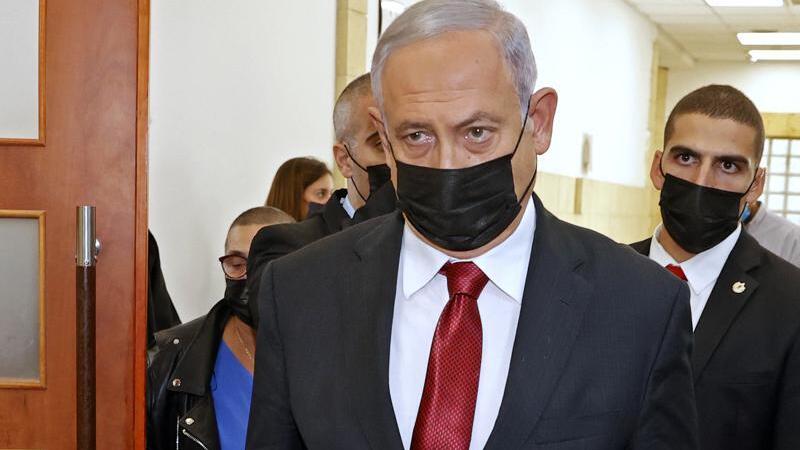Getting your Trinity Audio player ready...
After the sudden defection of coalition whip Idit Silman on Wednesday, Israel's political future is once again in disarray, with three possible scenarios now facing the country.
The first option is to go to elections, which is estimated to be the preferred move of Opposition leader Benjamin Netanyahu and his Likud party.
5 View gallery


Idit Silman, Opposition leader Benjamin Netanyahu
(Photo: Dani Shem Tov, Knesset Spokesperson, Alex Kolomoisky)
Netanyahu remains hopeful a new election cycle will ensure him the majority to form a right-wing and religious coalition government after failing to do so in the past cycles.
Elections will be an option, if another coalition member - most likely one from Bennett's own Yamina party - would join Silman and switch sides.
This will allow three party members: Silman, Amichai Chikli - who had previously sided with the Opposition during voting - and a third member of Knesset, to form a separate faction, receive funding under the law and avoid any parliamentary sanction.
Knesset members Nir Orbach and Abir Kara from Yamina are considered most likely to take the step and are being wooed by both Bennett and Netanyahu.
The government might also be subjected to a no-confidence motion, after it had lost its majority, clearing the path for a different government to form on the basis of the current Knesset.
Defense Minister and Blue & White Party leader Benny Gantz may be eyeing that option favorably, because an alliance with the Likud party and the religious factions would immediately seat him as prime minister.
Gantz had been offered the premiership in a rotation deal by Netanyahu who was unable to muster political support for his own government in consecutive elections over three years.
After serving in a previous Netanyahu led government, Gantz refused the Likud leader's offer because he had already been duped by him, when Netanyahu committed to a rotation of the top job in exchange for the former IDF chief joining his cabinet, but quickly reversed course.
In fact, Netanyahu had been unable to form a right-wing government after the 2021 elections because former allies and political partners had refused to allow him to lead the country, while he is on trial for corruption and because he was seen as untrustworthy in his political promises.
The third option is one where the current government remains in place relying on votes from across the political divide, although this is seen as unlikely to last more than a very short time because there would be no reason for legislators to support a lame duck government.
Silman's defection was linked to a letter sent by Health Minister Nitzan Horowitz to hospital administrators, urging them not to enquire about the contents of visitors' personal belongings during Passover - meaning that chametz which is forbidden on the Jewish holiday - could be on the hospitals' premises.
Horowitz who leads the left-wing Meretz party said he was reminding hospitals of a Supreme Court ruling that forbids hospital security personnel enforcing those laws.
5 View gallery


Health Minister Nitzan Horowitz addressing the Knesset in Jerusalem, June 23, 2021
(Photo: Screenshot)
"Horowitz wants to cancel the dietary restrictions during Passover? We won't allow him to remain a minister. He crossed a red line, and it will not happen on my watch," Silman said.
Silman did not share her decision with her coalition partners, including her own party leader and prime minister.
She had been promised the roll of health minister by Netanyahu, should he form the next government as well as a secure seat on the Likud Knesset list.
However, if no additional Knesset member announces he or she will leave the coalition, and while Bennett's government remains in power, Silman could be declared a rebel along with Knesset member Chikli, thereby preventing their participation in the next election and denying them funding.
Political observers say Silman would not have taken the dramatic step without assurances and that an additional defector would quickly be revealed.
In the letter she had sent to Bennett early Wednesday, Silman wrote: "I have joined the current coalition with a genuine desire to create unity on the basis of the common good that unites us as the Jewish people and Israel. I honestly believed that this way we would be able to fulfill the values we set out with. You know what great efforts I've put into preserving the coalition and leading it with my position as whip and chairman of Knesset's health committee. How I tried to preserve the unity, to find common ground, and by doing so, to express the importance of the tasks at hand.
"But some partners, who are in key roles in the coalition, probably see things differently and are not prepared for any compromise on these issues, which are the core of values of the public who elected us and brought us to the Knesset."
Silman went on to say, "key values in my view are inconsistent with the current reality. I am attentive to the voices of the people and to the sincere protest of the public who supported us and also to the voices of those who did not agree with us but still belong to the right side of the political map. I can no longer tolerate the damage to the values that are our essence."




